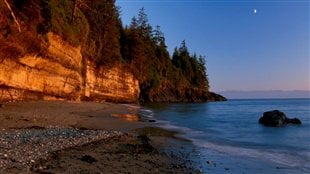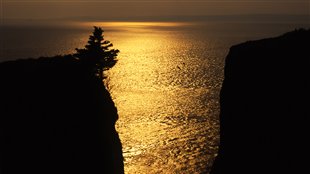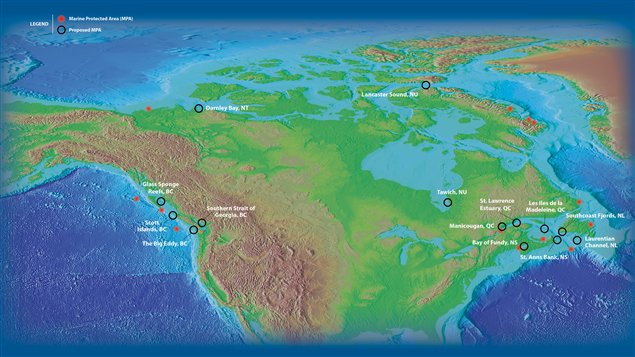Canada has a huge coastline but it ranks lowest among countries with large ocean territories when it comes to protecting them, according to a new report by the Canadian Parks and Wilderness Society (CPAWS). The conservation group notes that Canada has set aside just 1.3 per cent of the area that goes from its coasts to the end of the 200-mile exclusive economic zone.

By comparison Australia has protected 33.2 per cent, the U.S. 30.4 per cent and even China near the bottom of the list has set aside two per cent. Canada has promised to protect 10 per cent of its ocean estate by the year 2020. But in order to do so, CPAWS says it must spend more money, take a different approach, and use science and the tools that other countries have used to effectively protect marine areas.
Oceans face myriad threats
Pollution, overfishing, destructive fishing methods, increased marine traffic and industrial development are listed as threats to the health of the oceans in the report. The ocean produces half the world’s oxygen, is critical in regulating the world’s temperature and is an important source of food.
Canada was the first country in the world to have an Oceans Act, points out Sabine Jessen, national director of the oceans program at CPAWS. “So it still comes as a surprise to me that planning our oceans and protecting the ocean ecosystems that obviously contribute so much to both our economy and the overall health of our country, why the ocean isn’t a bigger priority is a bit of a mystery.”

Everyone should be concerned, says CPAWS
CPAWS acknowledges Canada has taken some steps on marine conservation in recent years, notably creating three new marine parks , and different levels of government have forged agreements to work together on the issue. But it says they need to move faster, allocate more money and take a network approach to marine protection rather than just creating individual protected areas.
The rest of the world should be concerned about Canada’s protection of oceans, says Jesson, because the oceans are all connected, species travel from one area to another, and the health of the oceans affects everyone.
In a previous report, RCI’s Marc Montgomery spoke with Canadian who says most marine parks are little more than window-dressing.







For reasons beyond our control, and for an undetermined period of time, our comment section is now closed. However, our social networks remain open to your contributions.